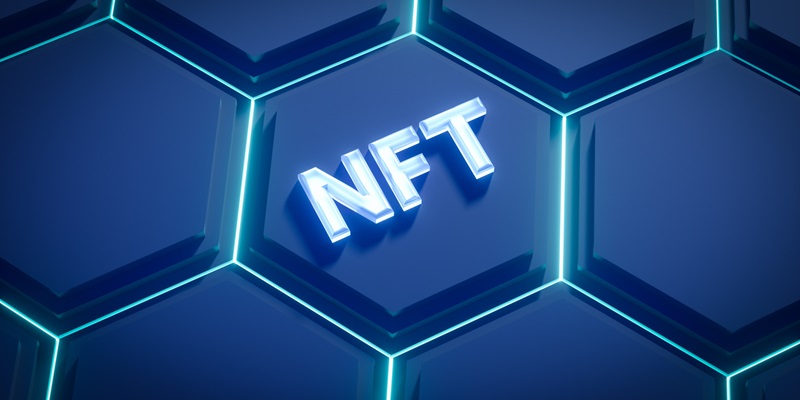In recent years, Non-Fungible Tokens (NFTs) have taken the art world by storm, revolutionizing the way digital assets are bought, sold, and owned. Unlike cryptocurrencies such as Bitcoin or Ethereum, which are fungible and can be exchanged on a one-to-one basis, NFTs represent one-of-a-kind digital assets, often in the form of digital art, music, collectibles, or virtual real estate. This article delves into the concept of NFTs, their role in the art world, the underlying blockchain technology powering them, and the concerns and possibilities they bring.
The Role of Blockchain Technology in the Popularity of NFTs
The surge in popularity of NFTs can largely be attributed to the blockchain technology that underpins them. Blockchain, a decentralized and transparent ledger, ensures the authenticity, ownership, and provenance of NFTs. Each NFT is assigned a unique digital signature or hash, making it tamper-proof and verifiable. This addresses long-standing issues in the digital art world, such as piracy and unauthorized duplication, offering artists a means to safeguard their intellectual property.
Tamper-Proof Verifiability and Intellectual Property Protection
With NFTs, artists can tokenize their work, essentially creating a digital certificate of ownership that is stored on the blockchain. This tokenization allows artists to have greater control over the scarcity of their work, as they can specify the total number of tokens created. Additionally, the blockchain also enables artists to receive royalties on secondary sales, ensuring they continue to benefit from the increasing value of their work.
Tokenizing Art and Giving Artists Control
By tokenizing their art, artists can establish a direct relationship with their buyers and fans. Traditional art market intermediaries such as galleries or auction houses are bypassed, allowing artists to have a more direct and sustainable income model. This democratization of the art market empowers artists and gives them greater control over their work, opening up new avenues for creativity and collaboration.
Reshaping the Economic Dynamics of the Art World
The introduction of NFTs has the potential to reshape the economic dynamics of the art world. Unlike traditional art markets, where artists often struggle to earn a sustainable income, NFTs provide artists with a platform to monetize their work in a more efficient and equitable manner. This offers a promising solution to the age-old challenge of artists earning a fair and consistent income, ultimately fostering a more sustainable ecosystem for creative professionals.
Environmental Concerns and the Ecological Impact of NFTs
Despite the numerous benefits of NFTs, concerns have been raised about their ecological impact. The energy consumption of blockchain networks, especially those based on proof-of-work consensus algorithms, has drawn criticism due to their carbon footprint. As blockchain technology evolves, efforts are being made to transition towards more eco-friendly alternatives, such as proof-of-stake algorithms, in order to mitigate the environmental impact of NFT transactions.
Questions on Intrinsic Value and Long-term Sustainability
The intrinsic value of digital art and the speculative nature of the NFT market have sparked debates about the long-term sustainability of this trend. Critics argue that the hype surrounding NFTs may be short-lived and that the market is driven by speculation rather than genuine appreciation for the art. However, supporters argue that NFTs offer unique ownership experiences and create a new paradigm for digital art, which will inevitably evolve as the technology matures.
The Dynamic and Diverse NFT Market
The NFT market is a dynamic ecosystem characterized by its rapid evolution and a diverse range of participants. Artists, collectors, investors, and enthusiasts converge on online marketplaces dedicated to NFTs, such as OpenSea and Rarible, to buy, sell, and trade digital assets. These platforms have become hubs for discovering and exploring new forms of digital art, forging connections, and fostering an active community around NFTs.
Online Marketplaces for Buying, Selling and Trading NFTs
Online marketplaces dedicated to NFTs have provided artists and collectors with a global platform to showcase and exchange their digital assets. These marketplaces offer a range of tools and features, such as bidding, auctions, and fixed-price listings, enabling artists to monetize their work and collectors to acquire unique and scarce digital assets. However, with the rapid growth of the NFT market, concerns over copyright infringement and scam listings have emerged, highlighting the need for increased vigilance and regulation.
Promoting Education and Responsible Practices in the NFT Ecosystem
As NFTs continue to gain momentum, it’s crucial to promote education and responsible practices within the ecosystem. Efforts are being made to demystify complex concepts, spread awareness about the potential benefits and risks, and encourage ethical behaviour among artists, collectors, and platforms. Educational initiatives, outreach programs, and collaborations with established art institutions are vital to ensure the sustainable development and long-term viability of the NFT market.
In conclusion, Non-Fungible Tokens (NFTs) have emerged as a groundbreaking innovation that is reshaping the art world. Enabled by blockchain technology, NFTs offer artists unprecedented control over their work, providing a platform for monetization and establishing new avenues for income. While concerns such as environmental impact and long-term sustainability exist, they can be addressed through technological advancements and responsible practices. As the NFT market continues to evolve, fostering a well-informed and responsible ecosystem will be essential for its continued growth and success.

